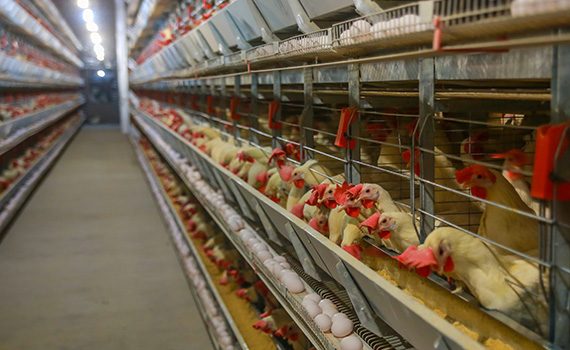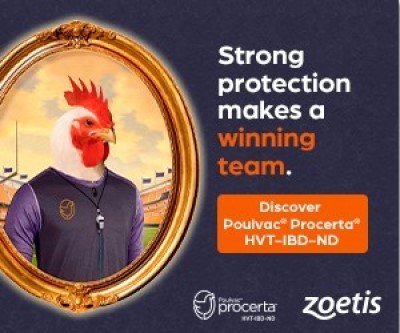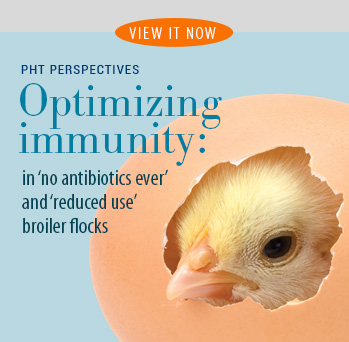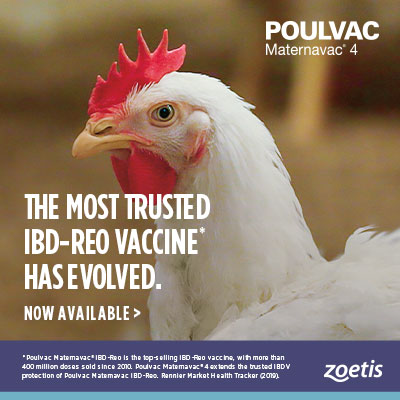Zoetis Fast Tracking Relaunch of Avian Coryza Vaccine to Aid U.S. Disease Outbreaks

DURHAM, N.C. Jun. 24, 2019 — Zoetis has reintroduced the vaccine Poulvac® Coryza ABC IC3 to help U.S. poultry producers combat outbreaks of avian coryza, an acute respiratory infection.
“Our avian coryza vaccine has a full U.S. Department of Agriculture (USDA) license, but because of limited need, it had not been marketed in the United States in recent years and the label was changed for export use only,” explained Rebecca Grieve, manager, US Biologicals Regulatory Affairs, Zoetis.
“In light of the recent outbreaks in Pennsylvania and knowing the disease could spread to other areas, our regulatory group worked with the USDA to obtain approval to distribute the product in the United States with the current export label. That approval has been granted.”
Poulvac Coryza ABC IC3 is indicated for the immunization of healthy chickens against clinical signs of infectious coryza (Avibacterium paragallinarum, previously known as Haemophilus paragallinarum) caused by serovars A, B and C. Zoetis, which manufactures the vaccine at its modern production facility in Charles City, Iowa, has already begun shipping the vaccine to affected areas.
Three serotypes
According to Penn State Extension, which has been monitoring outbreaks in the state, avian coryza is more common in mature birds, especially when they are stressed.1 Layers frequently become infected shortly after they’re moved to new cages or when they are near peak production.2 All three serotypes of A. paragallinarum — known as A, B and C — must be considered when immunizing the birds against this disease.3
“Serovars A, B and C are not cross-protective,4 so vaccines need to contain the serovars present in the target population to be effective,” said John Brown, DVM, a senior technical services veterinarian at Zoetis who specializes in layers.
Because avian coryza is a respiratory disease, infected birds transmit the disease through sneezing and coughing.5 Infected birds usually show severe facial edema (swelling).6 More significantly, the infection often leads to reductions in feed intake and a 10 percent to 40 percent reduction in egg production in active layers, according to Penn State Extension.7
A. paragallinarum is a Gram-negative pathogen susceptible to several antibiotics.8 Penn State Extension said that flocks that are already infected may be treated with either feed or water medications, usually tetracyclines, under veterinary supervision.9
The organism is easily destroyed by most disinfectants, dessication and direct exposure to sunlight.10 Infectious coryza does not present a risk to humans, nor does consumption of meat or eggs from infected birds present any risk to human health.11
For more information about Poulvac Coryza ABC IC3, contact your Zoetis representative or visit Zoetis’ U.S. Poultry website.
About Zoetis
Zoetis is the leading animal health company, dedicated to supporting its customers and their businesses. Building on more than 65 years of experience in animal health, Zoetis discovers, develops, manufactures and commercializes medicines, vaccines and diagnostic products, which are complemented by biodevices, genetic tests and a range of services. Zoetis serves veterinarians, livestock producers and people who raise and care for farm and companion animals with sales of its products in more than 100 countries. In 2018, the company generated annual revenue of $5.8 billion with approximately 10,000 employees. For more information, visit https://www.zoetisus.com.
###
1 Penn State Extension, Mar. 12, 2019, https://extension.psu.edu/avian-coryza (Accessed Mar. 26, 2019)
2 Ibid.
3 Ibid.
4 Merck Veterinary Manual, https://www.merckvetmanual.com/poultry/infectious-coryza/overview-of-infectious-coryza-in-chickens (Accessed Mar. 26, 2019)
5 Penn State Extension, Mar. 12, 2019, https://extension.psu.edu/avian-coryza (Accessed Mar. 26, 2019)
6 Merck Veterinary Manual, https://www.merckvetmanual.com/poultry/infectious-coryza/overview-of-infectious-coryza-in-chickens (Accessed Mar. 26, 2019)
7 Penn State Extension, Mar. 12, 2019, https://extension.psu.edu/avian-coryza (Accessed Mar. 26, 2019)
8 Ibid.
9 Ibid.
10 Ibid.
11 Ibid.
All trademarks are the property of Zoetis Services LLC or a related company or a licensor unless otherwise noted.
© 2019 Zoetis Services LLC. All rights reserved.
BIO-00180
Posted on June 24, 2019
 We’re glad you’re enjoying
We’re glad you’re enjoying
















